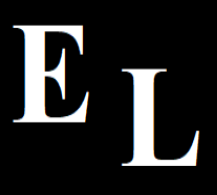Libertarianism is a branch of political philosophy that holds that social conflicts could be resolved or avoided if the Non-Aggression Principle (NAP) were respected, which states that no individual has the right to initiate the use of force against the person or legitimate property of another, even through threats, without his consent. Thus, the only legitimate violence is that exercised in self-defense.
We defend a purist view of libertarianism, known by some authors as “thin libertarianism”, which recognizes that it is NOT a complete moral or aesthetic philosophy and that, therefore, it does not seek to promote any specific lifestyle. As purists, we focus solely on the Non-Aggression Principle, without delving into broader ethical or cultural issues.
Issues such as personal tastes, attitudes towards certain groups, lifestyles, sexual orientation or religious beliefs belong to the individual sphere and libertarianism has nothing to say about them. For this reason, we do not consider that in order to be libertarian it is necessary to adopt conservative positions (such as the promotion of the traditional family or opposition to gender ideology) or progressive positions (such as the promotion of alternative family models or gender ideology).
The libertarian strategy
The libertarian strategy is based on our firm belief in the Non-Aggression Principle, which leads us to adopt a critical position towards who is currently its greatest transgressor: the State. We believe that it is essential to combat its power through a “combination of all forms of struggle”, using all possible means and working in the short, medium and long term to promote freer societies.
Short term:
Personal emancipation. We can counteract the influence that the State exerts on our lives through strategies such as the following:
Escape from its territorial power, adopting an international lifestyle that involves living and investing in several countries, possessing several nationalities and being able to renounce them when deemed convenient. As we move around the globe, the State will not be able to manipulate us so easily.
On the other hand, creating businesses and achieving financial freedom reduce any potential dependence on state aid.
Education. Rothbard said that the main mechanism for spreading the ideas of freedom is education. Currently, eight out of ten people around the world share the principles of socialism (in any of its forms) due to the intense pedagogical work of its theorists.
It is necessary to send the message to all people, without any distinction, about the perverse nature of the State and the benefits of a free society. In the process it is important to keep in mind Mises’ ideas about persuasion, versus violence, and Leonard E. Read’s ideas about positive leadership.
Medium term:
Private law societies. Projects have emerged around the world that offer an alternative to the classic nation-state, such as Doug Casey’s phyles, charter cities and private cities, or territorial secession, such as that enshrined in the Constitution of the Principality of Liechtenstein, which allows the voluntary separation of its municipalities. It is necessary to rescue and multiply all these initiatives in the name of freedom.
Long term:
Political change. A change of direction in public policies is possible and desirable, promoting freedom and reducing the power of the State from within. We believe that libertarians should not close ourselves off to the possibility of political change. A successful example of this can be found in Argentina, with Javier Milei, who has become the first libertarian (elected) ruler in history. However, it is important to note that in this journal we will never support any candidate or align with any political party. We adopt a non-partisan stance, but never one of neutrality.
Technology. It is possible that the definitive defeat of the State will be brought about by technological progress. Human civilization is advancing ever more towards an unprecedented level of complexity that will eventually absorb the State.
